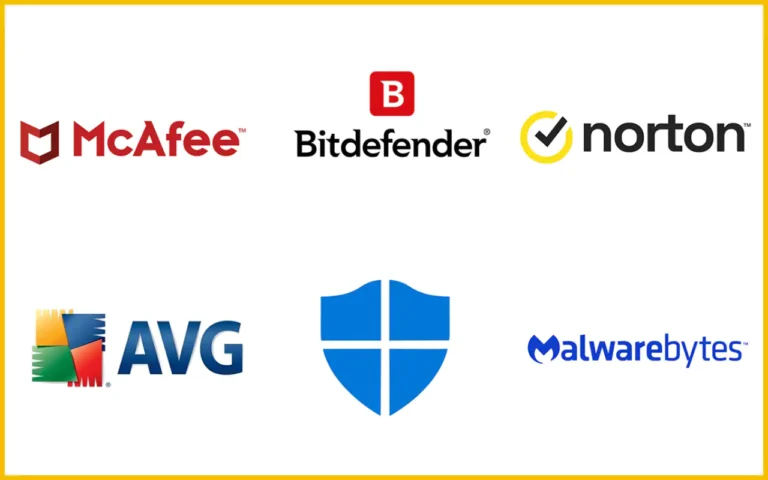Best Antivirus Software of 2024: In an era where technology permeates every aspect of our lives, protecting our digital assets is of paramount importance. Whether you’ve invested hundreds or thousands in a new PC, the looming threat of viruses and malware is a reality that every user must confront. The digital landscape is ever-evolving, and cybercriminals are becoming more sophisticated in their attempts to compromise your personal information. This is where investing in the best antivirus software becomes not just a precaution but a necessity.
Best Antivirus Software of 2024: Your Pc Need Protection
Stat counter’s latest data indicates that Windows devices account for nearly 70% of laptop or desktop operating systems. With such widespread usage, Windows becomes a lucrative target for malware creators, making it imperative for users to fortify their defenses. Our exploration into the best antivirus software of 2024 revolves around this premise, with a focus on solutions that cater specifically to Windows users.
1. CNET’s Top Pick: Microsoft Defender
At the forefront of our recommendations is Microsoft Defender, CNET top pick for the best antivirus software. Integrated seamlessly into Windows 10 and Windows 11, Microsoft Defender offers a robust defense against malware and viruses. Boasting regular updates and real-time protection, it serves as a reliable safety net for users who practice safe computing habits. While resource-intensive and lacking some advanced features, its effectiveness makes it a go-to choice for many.
2. Best Free Antivirus: Microsoft Defender

For those who adhere to safe computing practices, Microsoft Defender’s free antivirus solution proves to be a formidable ally. Built into Windows, it provides a baseline of protection, covering the essentials of internet security. With frequent updates and the ability to customize protection levels, it ensures that users have a safety net in place, especially when they let their guard down.
3. Best Antivirus Subscription: Norton 360 With LifeLock Select

NortonLifeLock’s Norton 360 With LifeLock Select earns accolades for its comprehensive suite of online security tools. With high marks in virus and malware detection from AV-Test, AV Comparatives, and SE Labs, Norton offers a 10-device subscription providing not only malware protection but also 100GB of cloud backup, secure VPN, password manager, parental controls, and identity theft protection. While its price increases after the first year, the array of services bundled makes it a compelling option.
4. Best Free Antivirus: Bitdefender Antivirus Free Edition

Bitdefender Antivirus Free Edition shines as an excellent choice for users looking to secure their PC without breaking the bank. Offering real-time monitoring for viruses, malware, spyware, and ransomware protection, Bitdefender’s free version is lightweight and easy to set up. Recognized for top-notch antivirus protection by AV-Test, it’s a reliable option for Windows 10 and 11 users.
5. Best Malware Removal Service: Malwarebytes

Malwarebytes distinguishes itself as a go-to solution for malware removal. While excelling in recent independent tests for guarding against malware threats, Malwarebytes is particularly renowned for its effectiveness in disinfecting devices. With flexible pricing plans, users can opt for protection and disinfection for a single device or extend coverage to multiple devices.
Other Contenders Worth Considering




In addition to our top picks, there are other noteworthy contenders in the antivirus realm:
- McAfee Total Protection: A long-standing player offering solid antivirus software.
- Trend Micro Maximum Security: Focused on enterprise security, Trend Micro brings its expertise to home users with effective tools.
- ESET NOD32 Antivirus: Known for its easy setup and usability, ESET NOD32 offers reliable virus protection.
- Sophos Home: The free version of Sophos Home provides virus protection for multiple devices, making it an attractive option for budget-conscious users.
Why We Don’t Recommend Avast and Kaspersky
It’s crucial to make informed choices when selecting antivirus software. While Avast performs well in tests, concerns about its data collection practices have raised privacy questions. Similarly, the federal ban on US government agencies using Kaspersky Antivirus products due to alleged ties with the Russian government raises concerns about the safety of consumer products.
Antivirus Basics: What to Look For
Choosing the best antivirus software involves considering several factors:
- Effectiveness: Ensure the software effectively identifies and protects against known and unknown threats.
- Resource Usage: Opt for software that doesn’t tax your system resources, ensuring smooth performance.
- Cost and Discounts: Explore discounts and package options to maximize value.
- Privacy: Review privacy policies to understand how the antivirus software handles your data.
- Cross-Platform Protection: Evaluate the need for protection on other platforms, considering the prevalence of threats.
As the digital landscape evolves, so do the threats that lurk within it. Choosing the right antivirus software is an essential step in fortifying your digital fortress. While our recommendations serve as a guide, it’s crucial to stay vigilant, practice safe computing habits, and regularly update your antivirus software to ensure optimal protection against emerging threats. Invest wisely, and let your digital journey be one of security and peace of mind.
FAQ: Choosing the Best Antivirus Software in 2024
Antivirus software is crucial for protecting your PC against viruses, malware, and other digital threats. As technology advances, cybercriminals become more sophisticated, making it necessary to fortify your digital defenses and safeguard your personal information.
Windows devices account for nearly 70% of laptop or desktop operating systems, making them a lucrative target for malware creators. This guide prioritizes solutions specifically tailored to Windows users to address the prevalent threats on this platform.
Microsoft Defender is seamlessly integrated into Windows 10 and 11, providing robust defense against malware and viruses. Regular updates and real-time protection make it a reliable choice, although it may be resource-intensive and lacks some advanced features.
Yes, Microsoft Defender’s free antivirus solution offers a formidable baseline of protection for users practicing safe computing habits. Built into Windows, it provides essential internet security and can be customized for protection levels.
Norton 360 With LifeLock Select earns praise for its comprehensive suite of online security tools, including malware protection, 100GB of cloud backup, secure VPN, password manager, parental controls, and identity theft protection. While the price increases after the first year, the bundled services make it a compelling option.
Bitdefender Antivirus Free Edition is highlighted as an excellent choice for users looking to secure their PC without breaking the bank. With real-time monitoring for viruses, malware, spyware, and ransomware protection, it offers lightweight and effective security for Windows 10 and 11 users.
Malwarebytes excels in both guarding against malware threats and effectively disinfecting devices. Its flexible pricing plans allow users to choose protection and disinfection for a single device or extend coverage to multiple devices.
Yes, other contenders include McAfee Total Protection, Trend Micro Maximum Security, ESET NOD32 Antivirus, and Sophos Home. These options cater to specific needs or preferences and expand the range of choices for users.
While Avast performs well in tests, concerns about its data collection practices have raised privacy questions. Kaspersky Antivirus products are not recommended due to a federal ban on US government agencies using them, citing alleged ties with the Russian government, raising concerns about consumer product safety.
When selecting antivirus software, consider factors such as effectiveness in threat detection, resource usage to ensure smooth performance, cost and available discounts, privacy policies, and whether cross-platform protection is necessary for your digital devices. Making informed choices is essential for optimal protection against emerging threats.



